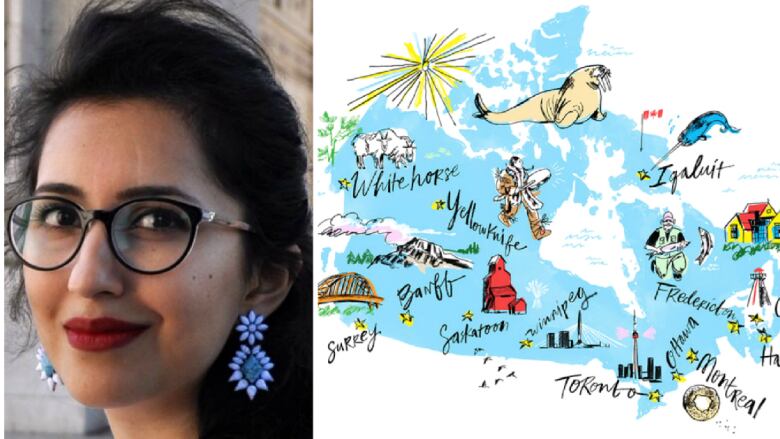Journalist bridges connection between refugees and Indigenous people
Pakistani Canadian Sadia Rafiquddin says more similarities between two groups than differences

A Canadian journalist who arrived in Canada as a refugee says there should be more links between Canada's refugees and Canada's Indigenous people.
Pakistani Canadian Sadia Rafiquddin says there are more similarities between the two groupsthan differences.
"In many instances,Canada's Indigenous peoples were removed from their homes and the very same thing has happened to refugees around the world. They have been forcibly removed from their homes whether it is a political crisis, an economic crisis or any other type of crisis that they've had to leave, not because they've wanted to, but because they've had to," she explained.
At a talk tonight sponsored by the Walrus Foundation, in partnership with the Order of Canada, Rafiquddin will speak about her own personal experience about connecting with Innu elder Elizabeth Penashue.
Penashue, from Labrador, walks more than 200 kilometresevery year to her birthplace inside the Mealy Mountains.

"She was forcibly removed and put into a community setting against her will," Rafiquddin said.
"These walks are meant to be her chance to connect to the land, the animals, the water, to be in her birthplace, to recognize her home."
Penashue has done this walk each year for the past 14 years, and one year, Rafiquddin asked for an opportunity to join her.
"Over 250 kilometers, she and I and her family shared so much. We talked about our languages, our communities, where we came from, what the experience of being forcibly removed from one's homeland has on a sense of well-being for a person," she said.
Rafiquddin says it's important to make such a connection because coming together will ultimately make Canada a better country.
"We need to hear about our common humanity. We need to be less us versus them and think more about all of us being together and building a better country," she said.
The talk takes place tonight at 7 p.m. PT at Centre Stage at Surrey City Hall.
Listen to the interview with Sadia Rafiquddin on CBC's The Early Edition:












_(720p).jpg)


 OFFICIAL HD MUSIC VIDEO.jpg)
.jpg)



























































































